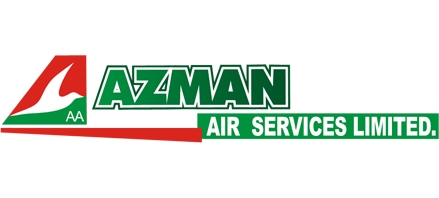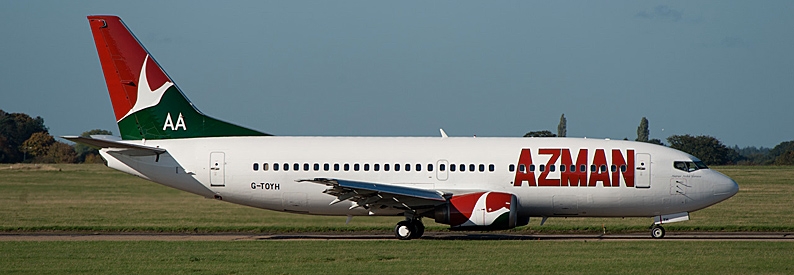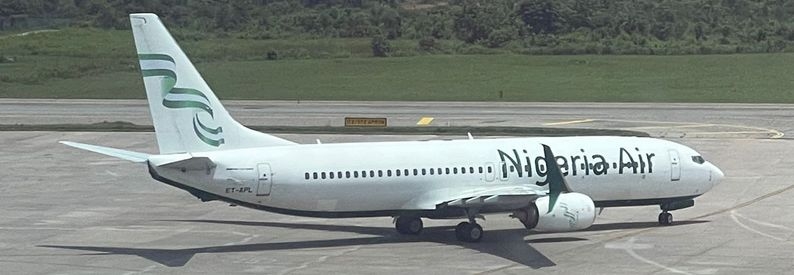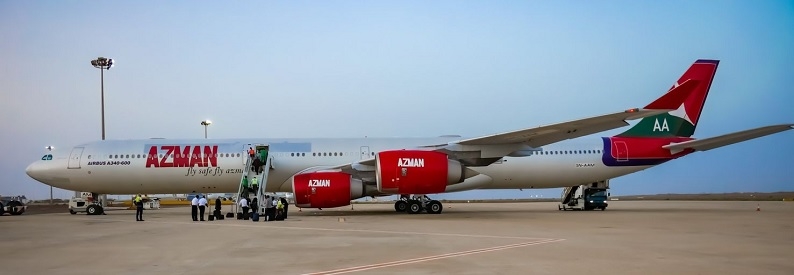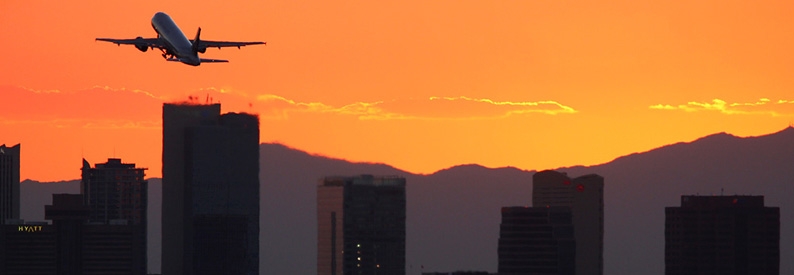Azman Air (AZM, Kano) appears to have suspended most of its domestic operations but continues to operate charters to Saudia Arabia under contract from the National Hajj Commission of Nigeria (NAHCON).
ch-aviation research found Azman Air flights are unavailable for bookings on its website. ADS-B data shows that its last domestic service took place on June 14, 2023, between Abuja and Kano.
The airline was not available for comment.
The ch-aviation Commercial Aviation Aircraft Data module shows that only two of Azman Air's fleet of seven aircraft are currently in active service:
- B737-500 5N-AIS (msn 29235) normally used on domestic routes, including Abuja, Kano, Lagos and Kaduna;
- A340-600 5N-AAM (msn 765), providing Hajj charters to Madinah in Saudi Arabia for the Hajj 2023 season since June 1, 2023. ADS-B data shows the aircraft last returned from Medina to Kano on June 20. It has also conducted repatriation flights from Sudan and Egypt in the past months, according to Azman Air's social media posts.
According to the DailyTrust newspaper, Azman Air and other Nigerian carriers face a worsening foreign exchange crunch, impacting their ability to pay for aircraft in maintenance. Citing an unnamed source, DailyTrust claims at least one or two airlines may suspend operations if the forex crisis is not solved soon.
According to the ch-aviation Commercial Aviation News, Operator & Airport Data module, 56.67% of Nigerian airlines' fleets are currently grounded, involving 59 aircraft at 11 airlines.
The source said: "I can tell you many airlines are facing acute dollar shortage. We can't access dollars to buy spare and fulfil other obligations. Airlines are currently grounding operations because we feel it is better to ground operations than to compromise Safety. The safety of passengers is paramount, and this is also the advice of the regulatory authority, the Nigeria Civil Aviation Authority (NCAA)."
The situation likely pushed up fares: "Airlines are already paying more to get forex at the black market for spare parts and maintenance. Now that the naira has been devalued and coupled with this unified exchange rate, we only hope we would have more access to dollars but imagine paying over NGN700 [naira] for one dollar; it means the operation[al] cost of airlines would go up again."
Aero Contractors Chief Executive Officer, Ado Sanusi, said: "You know, dollars cut across a lot of variables in aviation - Jet A1 [fuel], spare parts, leasing, and MRO, and sometimes even payment of salaries to ex-pat staff. So there are a lot of things that have affected the profitability of airlines in Nigeria because of this dollar [situation]."
Nigeria is in the middle of a cash crisis as the country attempts to replace its old currency with a new one, contributing to the foreign exchange shortage. The Central Bank of Nigeria has ended its distorted foreign exchange rate, which has led to a record fall in the value of the Nigerian naira to NGN755 per US dollar.
